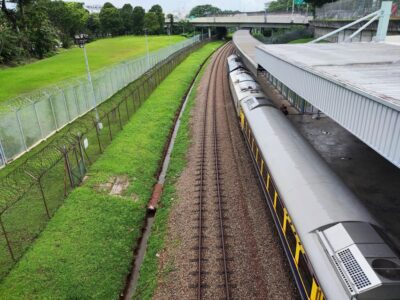Co-living startup COVE charges 45% lower than regular market rate
Each month, tenants only have to pay around SGD1,700 (USD1,259)

COVE, a co-living space in Singapore, revealed that they charge an average of SGD 1,700 monthly, which costs about six percent lower than a flatshare and 45.51 percent lower than a studio apartment, reported Singapore Business Review.
The co-living startup has developed a business plan that enables them to offer cheaper prices, with an all-inclusive fee that covers the furnishing, wifi-connection, utilities, cleaning supplies, and weekly housekeeping.
“The main pain points that we’re trying to solve is the question of affordability. People, especially the 20s, cannot afford to buy a house or an apartment anymore,” explained the co-founder and CEO of Cove Guillaume Castagne.
“We’re trying to solve the affordability crisis, where people actually have more rent, smaller spaces, and more customised to their needs because potentially they only need a room.”
More: Shared living: A ‘logical’ trend in Asia
Castagne also said that renting an apartment can be overwhelming, from searching for the perfect place in several websites to communicating with several agents. But with COVE, potential tenants can simply book a place and pay online.
Through their new platform, tenants can use the 3D tools to choose the furnishings and design of the new place.
Last September, COVE acquired SGD2.72 million in a seed funding session led by Venturra Capital, Investigate, Yuj Ventures, and Picus Capital.
Raditya Pramana, partner at Venturra Capital, said that he saw great potential in COVE and the future of co-living spaces.
“Our investment mandate has to always invest in high growth companies all around Southeast Asia. And for COVE, their aspiration is to create a co-living brand that is uniform with six major countries in Southeast Asia, starting from Singapore. They will be slowly expanding to the other market very soon,” said Pramana.
Recommended
Thailand advances digital finance with blockchain real estate push
Issues over marrying blockchain incentives to a physical asset class is hampering Thailand’s digital finance push
Johor Bahru emerges as a key economic partner to Singapore
Once regarded as a poor relation across the causeway, Johor Bahru is cementing its status as an integrated economic partner to Singapore
Vietnam sets new rules to reward clean energy producers
Vietnam’s government has passed new regulations allowing homeowners and landlords to sell solar power back to the national grid for the first time
Bangkok developers shift focus to safer low-rise and suburban projects
Concerns over Bangkok’s seismic safety in the wake of the recent Myanmar earthquake have prompted a shift toward low-rise developments






